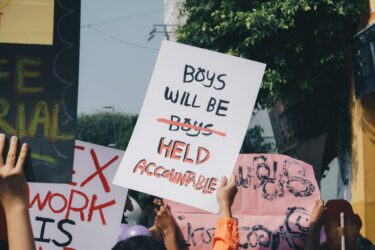By Melike Hilal Gumus
No woman should have to worry about their safety when they are walking alone on the street. No woman should have to carry their keys between their knuckles as a weapon in case of any threat. No woman should have to send their location to someone because they are scared.
No woman should have to feel unsafe, but this is a utopian idea in our world.
More than half of women in Canada experience at least one type of sexual harassment in their lifetime, however, sexual assault cases are most likely to be undercounted because they’re not all reported to the police.
In Canada, 18 per cent of victims did not report the sexual assault to the police believing that they would not help them, and 33 per cent believed that the police could not do anything to help.
Only five per cent of sexual assaults were reported to police in 2014, and since the #MeToo movement started in 2017, this number increased by 50 per cent in Canada.
However, the number is still low, and many women don’t trust the police. I believe this number will be increasing around the world after Sarah Everard’s murder on March 3.
Everard, 33, was kidnapped and murdered by a police officer in London while walking home. Her murder raised many questions among people around the world, including who can be trusted. It ignited many protests and a global movement about violence against women.
In this global movement, women shared their personal stories, experiences with sexual harassment and support for each other in holding men accountable to raise awareness.
In the midst of people fighting for women’s safety around the world, Turkey withdrew from an international accord that dealt with preventing and combating violence against women and domestic violence.
The Istanbul Convention was signed by 45 countries and the EU, and Turkey was the first signatory in 2012. Turkey announced its withdrawal from the convention that protects women in the country without any parliamentary debate.
As someone who lived in Turkey for 19 years, it is disappointing to see a step backwards on the issue of violence against women, while femicide and domestic violence rates are rising in the country.
Turkey had 474 femicide victims in 2019, and 300 women were murdered by men in 2020 with another 171 women victims that died from “suspicious” causes.
A group of UN human rights experts also voiced their concerns on Tuesday, on Turkey’s withdrawal from the Istanbul Convention, and called Turkey to reconsider the decision because of the dangerous messages it sends.
A data from UN Women UK reported 97 per cent of women between the ages of 18 to 24 experienced some sort of sexual harassment in the U.K., and almost nine out of 10 women around the world feel unsafe in public places.
Sexual harassment doesn’t have to be physical. Verbal sexual harassment affects many women every day.
Imagine being sexually objectified and catcalled every time you go out or get looks at a store, on the street, or on public transport that makes you uncomfortable and scared. These unwanted situations can have seriously damaging effects on women’s mental health.
To end all kinds of sexual harassment and save many women’s lives, we have to start with listening and believing survivors instead of finding a reason to make the sexual harassment their fault.

Clothes, being intoxicated, walking alone on the street, going out late at night, taking public transport, or anything that a woman does, doesn’t justify sexual violence and can never count as consent.
We have to educate men because not all men might be trying to hurt a woman but if we don’t take any action it is going to be all women who are getting hurt.
